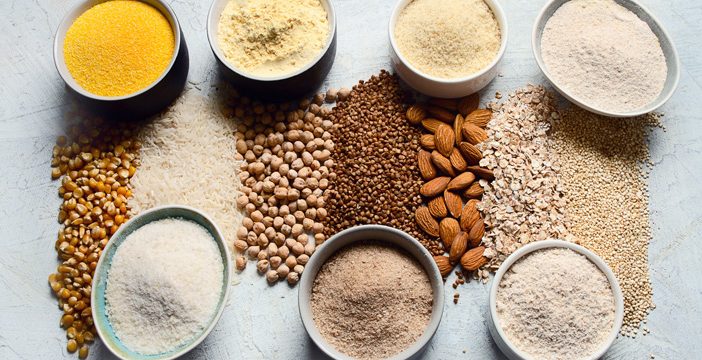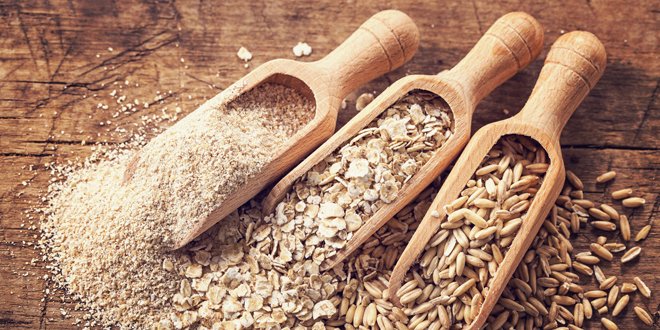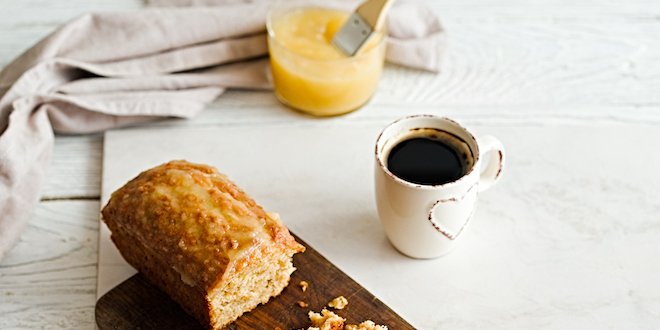
If you enjoy baking, flour is likely a staple in your kitchen. However, some types of flour are healthier and better for your blood sugar than others. Read on to learn more about the best types of flours for people with diabetes.
Types of flour available in Canada
There are many types of flour available in Canada, including:
White flour, which includes cake, pastry and all-purpose, is the most common flour used in baking, but it is also the least healthy. White flour is highly refined, and many essential nutrients are removed during the refinement process. This leaves behind a high amount of starch and virtually no fibre or protein, which can cause blood sugar spikes.
Whole wheat flour is made by grinding entire wheat kernels (including the bran, endosperm and germ) into a fine powder. This makes it more nutrient-rich, as well as a good source of protein and fibre.
Buckwheat flour is made from ground buckwheat, a plant known for its grain-like seeds. Despite its name, buckwheat is unrelated to wheat, so it is gluten-free. Some studies have shown that buckwheat flour may lower blood sugar in people with diabetes and improve heart health.
Soy flour is made by grinding pure roasted soybeans. It is naturally gluten-free, high in protein and rich in isoflavones, which help lower blood sugar and cholesterol levels.
Almond flour is made by blanching (submerging in boiling water) almonds and then grinding and sifting them. It is also wheat- and gluten-free, making it a great alternative to white flour for baking. Almond flour also contains many important vitamins, minerals and antioxidants.
Barley flour is made from dried and ground barley. It is rich in fibre and magnesium, which helps control blood sugar and regulate insulin levels.
Oat flour is made from ground oats, and can easily be made at home by grinding them in a blender or food processor. Oat flour is a good source of protein and fibre, and can lower blood sugar in people with diabetes.
Spelt flour is made from spelt, an ancient grain that is very similar to wheat. It is rich in fibre, which can help lower blood sugar after a meal.
How does flour affect blood sugar?
Most traditional types of white flour – such as cake, pastry and all-purpose – are high in carbohydrates and low in fibre and protein. This means that they can increase your blood sugar levels. They also have few nutrients, as these are stripped away during the milling and refining processes.
Other types of flour – such as buckwheat, soy and oat – are lower in carbohydrates, and higher in fibre and protein. They also have a higher vitamin and nutrient content. These flours will have a lesser effect on your blood sugar and are healthier options for your baking needs.
Which types of flour are best for people with diabetes?
As noted above, the best types of flour for people with diabetes are:
- Buckwheat flour
- Soy flour
- Almond flour
- Barley flour
- Oat flour
- Spelt flour
Tips for using flour
Check out these tips for the best types of flour for people with diabetes:
- Since many nut- and grain-based flours contain no gluten, they can result in a crumblier baked good. Adding a binder – such as maple syrup, applesauce or mashed banana – can help ensure a moist result.
- You can generally substitute various healthy flours for others, depending on what you have in your pantry. Almond flour, buckwheat flour and soy flour are generally interchangeable in many baked goods recipes.
- You can reduce the amount of fat (e.g. oil or butter) in a recipe when using healthier nut-based flours, as nuts are generally already high in fat. Your baked goods will still be moist and full of flavour.
- Increase baking time and use a lower temperature when baking with nut- or grain-based flours. As a general rule, you should increase the baking time by about 20% and reduce the oven temperature by about 25 degrees Fahrenheit. The lower temperature will reduce the risk of burning, and the longer cooking time will allow your baked goods to cook completely.
- Nut flours are higher in oil and fat, and are more perishable than wheat flours. They should be stored in a sealed bag in your refrigerator freezer to help preserve them.
There are lots of healthy flours available for a variety of your baking needs. Choose among the many available in your supermarket or health food store and get baking!




